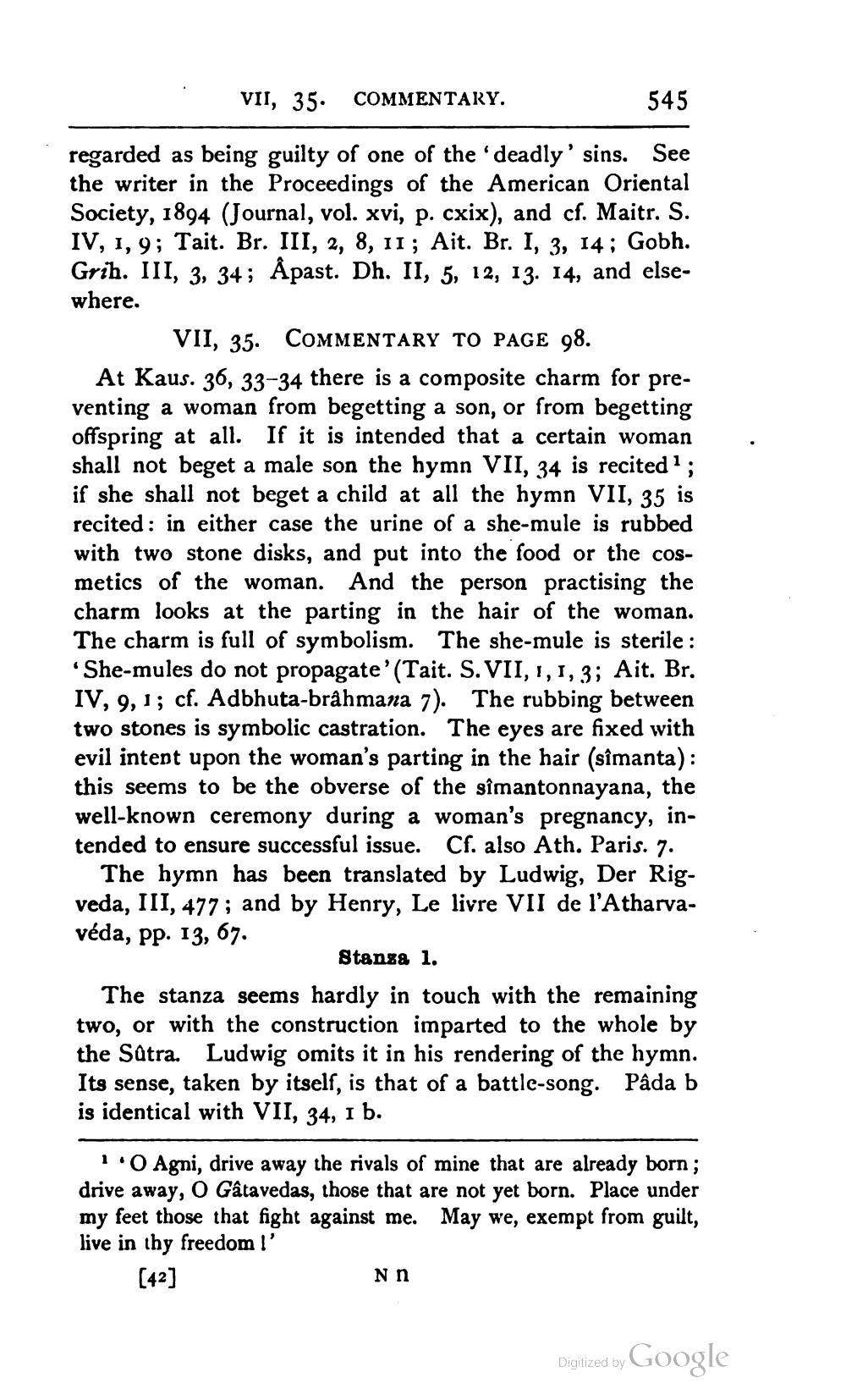________________
VII, 35. COMMENTARY.
545
regarded as being guilty of one of the deadly' sins. See the writer in the Proceedings of the American Oriental Society, 1894 (Journal, vol. xvi, p. cxix), and cf. Maitr. S. IV, 1, 9; Tait. Br. III, 2, 8, 11; Ait. Br. I, 3, 14; Gobh. Grih. III, 3, 34; Åpast. Dh. II, 5, 12, 13. 14, and elsewhere.
VII, 35. COMMENTARY TO PAGE 98. At Kaus. 36, 33-34 there is a composite charm for preventing a woman from begetting a son, or from begetting offspring at all. If it is intended that a certain woman shall not beget a male son the hymn VII, 34 is recited; if she shall not beget a child at all the hymn VII, 35 is recited: in either case the urine of a she-mule is rubbed with two stone disks, and put into the food or the cosmetics of the woman. And the person practising the charm looks at the parting in the hair of the woman. The charm is full of symbolism. The she-mule is sterile : 'She-mules do not propagate'(Tait. S. VII, 1, 1, 3; Ait. Br. IV, 9, 1; cf. Adbhuta-brâhmana 7). The rubbing between two stones is symbolic castration. The eyes are fixed with evil intent upon the woman's parting in the hair (sîmanta): this seems to be the obverse of the sîmantonnayana, the well-known ceremony during a woman's pregnancy, intended to ensure successful issue. Cf. also Ath. Paris. 7.
The hymn has been translated by Ludwig, Der Rigveda, III, 477; and by Henry, Le livre VII de l'Atharvavéda, pp. 13, 67.
Stanga 1. The stanza seems hardly in touch with the remaining two, or with the construction imparted to the whole by the Satra. Ludwig omits it in his rendering of the hymn. Its sense, taken by itself, is that of a battle-song. Pâda b is identical with VII, 34, 1 b.
1.0 Agni, drive away the rivals of mine that are already born; drive away, O Gâtavedas, those that are not yet born. Place under my feet those that fight against me. May we, exempt from guilt, live in thy freedom l' [42]
Nn
Digized by Google




